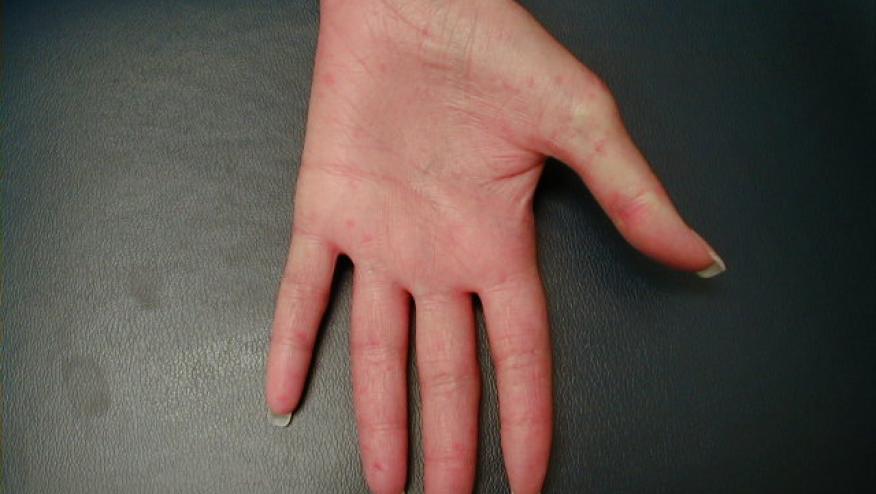EUSTAR Analysis Yields Predictors of Skin Improvement in Diffuse Systemic Sclerosis Save

Systemic sclerosis is one of the most challenging of rheumatic diseases, often complicated by significant morbidity and leads to irreversible disability in many cases. While new treatments aimed to target major organ damage develop, little success has been achieved in management of skin changes of diffuse cutaneous systemic sclerosis (dcSSc).
It is generally agreed upon that prevention of progression of active skin fibrosis in dcSSc patients is one of the major treatment goals, though it's unclear which subgroups of dcSSc patients will likely show improvement under standard of care without use of significant immunosuppression.
A longitudinal analysis of a recent, large-scale, observational study on the European Scleroderma Trials And Research (EUSTAR) database was performed to identify the predictors for improvement of skin fibrosis in patients with dcSSc. Such findings may optimize the inclusion criteria for dcSSc clinical trials and help rationalize use of immunosuppressive therapy in clinical setting.
A total of 919 with dcSSc who fulfilled American College of Rheumatology 1980 classification criteria with mRSS ≥7 at the first visit (baseline) and available data for the modified Rodnan skin score (mRSS) at 12±2 months follow-up were evaluated. 218/919 (24%) patients showed skin improvement over 1-year follow-up.
The candidate predictors of skin improvement were identified as follows:
▸ Baseline mRSS
▸ Disease duration
▸ ANA positive
▸ Anti-Scl70 positive
▸ Tendon friction rubs
▸ Proteinuria
▸ Conduction blocks
▸ Abnormal diastolic function
▸ Fibrosis on chest X-ray
▸ DLCO ≥70%
▸ Joint contractures
The most significant predictor of skin improvement was baseline mRSS (p0.001). Other significant predictors were absence of tendon friction rubs and negative Scl-70 antibodies.
A key message resulting from the study is the important role of baseline mRSS to predict either progression or regression of skin fibrosis. These data further support a lower baseline mRSS as inclusion criteria to optimise the ratio of progressors over regressors for recruitment into clinical trials.








If you are a health practitioner, you may Login/Register to comment.
Due to the nature of these comment forums, only health practitioners are allowed to comment at this time.